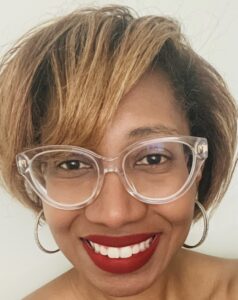
I am going to prepare you all that this is going to be a very transparent and reflective look at awards, in our world language communities and organizations. I am specifically talking about Teacher of the Year Awards, which can be applied to state, regional, or on a national level. Now, before I go any further, the purpose of this blog post is not to take away from the current winners and/or those that have won. I understand how rigorous the process is, and all the work that is entailed on the journey. I also recognize that it is an honor for many. However, let me be clear here, I am speaking from my own perspective of being on the other side–not receiving the Teacher of the Year award after having been nominated.
I understand why those of us who are not awarded the Teacher of the Year award have those conversations with whom we feel safe with, trust, and/or have friendships with. This side is often not talked about, and I want to bring an awareness to some serious concerns that I have encountered and observed about the processes and results, as well as what we the world language community need to do in order to create systematic changes. These systematic changes should promote more representation of people of color, and equitable and transparent processes, especially if we are serious about diversity, equity, inclusion, and belonging, the whole if I’m “talking the talk,” I need to “walk the walk,” that I recently spoke about at ACTFL in Chicago.
When I found out that I was not the recipient of the award, I took pause, and inquired why. Some of my questions included the following:
-Was this a situation where I was overqualified?
–Was everything that I have done so far as a language advocate taken into consideration from an equitable perspective?
-Was there just one specific component in my portfolio and/or in my interview that automatically placed me as a finalist?
-Is the criteria for Teacher of the Year candidates for teachers who already have a platform or to give teachers a platform?
I had concerns as to whether or not this process was equitable to someone like me with my qualifications. Let me explain here what I meant by that. I am a black woman who has been blessed to accomplish and achieve a lot(including two previous awards) in a predominantly white world language community, for the purpose of increasing equitable and inclusive opportunities for teachers, and curriculum content. So, with that being said, I understand my reality. I understood that with this particular award it was already an uphill battle for someone like me, especially if our interviewing committees don’t have equitable representation of people (someone that looks like me), a clear communicative transparent process of preparation and expectations, and if we have seen and continue to see a very small percentage of people of color who receive teacher of the year awards. This is a systematic problem, and if we haven’t started conversations about it, toward making changes, in order to move to action, then nothing will change.
Unfortunately, when I inquired with those questions (above), I did not get a response from the people that were specifically and directly involved in the entire process of receiving the applications, portfolios, and interviewing. So you can imagine the pain of the silence, and the disappointment that I had towards those people that I trusted, because of the lack of response. There was no sense of urgency and a lack of acknowledgement in my concerns. I later found out that other parties were going to reach out, but at that point it was too late. When I finally received feedback, I was devastated by what was given, and very disappointed by all those directly and specifically involved.
Regardless of what is “traditionally” considered protocol in these situations, how would our students feel if they reached out to us about concerns of how things are going in the classroom and/or wanted feedback, yet we didn’t acknowledge? Isn’t that hypocritical? So, why are we doing this to one another?
While I hoped it was “we needed more details for this question and…,” but rather it was an inequitable comparison. I could never even meet the expectation of those involved in the interviewing committee because my identity– how I speak, my culture, and my statement (that I had to write) is my unique story. So, what does that mean? I am who I am. I value myself. I know what I have been graced to bring awareness to in the world language community, and if someone and/or a group of people doesn’t deem that as valuable and a priority, it is a missed opportunity.
Are we allowing our subjectivity in our decision making about an award that is an honor to many? Is that equitable?
Are we checking our biases at the door or are we bringing them with us when we are interviewing candidates?
If you resonated with what I shared, I hope and pray that you find encouragement in knowing that I too, have gone through this, and am in the process of healing. However, if you are on the other side of this, as in a winner, congratulations, or a language teacher with state, regional, or national board influence, I encourage you to not only acknowledge that this is a problem, but to use your platform as well to make some serious equitable changes that lead to full transparency, inclusion, and representation.
